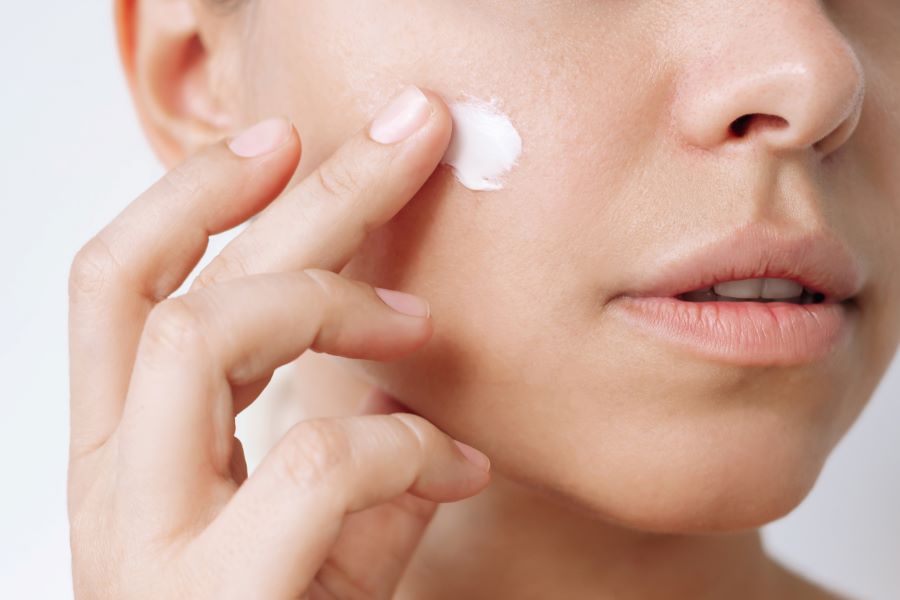UNVEILING THE SECRETS TO GORGEOUS SKIN: A COMPREHENSIVE GUIDE TO FACIAL MASKS
Unlock the secret to radiant skin with this comprehensive guide to facial masks. From LED and collagen masks to organic and eco-friendly options, explore a variety of solutions designed to cater to your skin's unique needs. Whether seeking hydration, anti-aging, or detoxification, facial masks offer a rejuvenating experience that promotes healthier, glowing skin effortlessly.

What are the different types of facial masks available?
Facial masks come in a wide variety of formulations, each designed to target specific skin concerns. Clay masks, known for their detoxifying properties, are excellent for oily and acne-prone skin. Sheet masks, soaked in nutrient-rich serums, provide intense hydration and are suitable for all skin types. Gel masks offer cooling and soothing effects, making them ideal for sensitive or irritated skin. Cream masks, packed with nourishing ingredients, are perfect for dry and mature skin. Peel-off masks can help remove dead skin cells and unclog pores, while overnight masks work their magic as you sleep, providing deep hydration and repair.
How do facial masks benefit different skin types?
The benefits of facial masks vary depending on the formulation and your skin type. For oily skin, clay and charcoal masks can help absorb excess oil and unclog pores, reducing acne breakouts. Dry skin can benefit from hydrating masks containing ingredients like hyaluronic acid and glycerin, which help lock in moisture. Anti-aging masks often contain retinol, peptides, or vitamin C to promote collagen production and reduce fine lines. Sensitive skin can find relief with soothing masks containing ingredients like aloe vera or chamomile. Combination skin can benefit from multi-masking, applying different masks to different areas of the face to address specific concerns.
What ingredients should you look for in facial masks?
When choosing a facial mask, it’s essential to consider the ingredients based on your skin concerns. For hydration, look for masks containing hyaluronic acid, glycerin, or ceramides. Anti-aging masks should include retinol, peptides, or antioxidants like vitamin C and E. If you’re dealing with acne, seek out masks with salicylic acid, bentonite clay, or tea tree oil. For brightening and evening skin tone, consider masks with niacinamide, vitamin C, or licorice root extract. Those with sensitive skin should opt for gentle, fragrance-free formulations with soothing ingredients like aloe vera, oatmeal, or calendula.
How often should you use facial masks?
The frequency of facial mask application depends on your skin type and the specific mask you’re using. Generally, most masks can be used 1-3 times per week. However, gentle hydrating masks may be used daily, while more intensive treatments like chemical peels should be limited to once a week or less. It’s crucial to listen to your skin and adjust usage accordingly. Overuse of masks, especially those with potent active ingredients, can lead to irritation or dryness. Always follow the instructions provided with the product and consult with a dermatologist if you’re unsure about the right frequency for your skin.
What are some tips for maximizing the benefits of facial masks?
To get the most out of your facial masks, start with a clean face to ensure better absorption of the mask’s active ingredients. Exfoliating before applying a mask can also enhance its effectiveness by removing dead skin cells. When applying the mask, use gentle, upward motions to promote circulation and avoid tugging at the skin. Many masks work best when left on for 10-20 minutes, but always follow the specific product instructions. After removing the mask, gently pat any remaining product into your skin instead of rinsing it off, unless directed otherwise. Follow up with your regular skincare routine, including moisturizer and sunscreen during the day.
How do facial masks compare in terms of cost and effectiveness?
Facial masks vary widely in price and effectiveness, ranging from affordable drugstore options to high-end luxury treatments. While some premium masks offer advanced formulations and innovative delivery systems, many affordable options can still provide excellent results. To help you make an informed decision, here’s a comparison of popular facial mask types:
| Mask Type | Average Cost Range | Key Benefits | Best For |
|---|---|---|---|
| Sheet Masks | $2 - $10 per mask | Quick hydration, convenience | All skin types |
| Clay Masks | $10 - $50 | Oil control, pore cleansing | Oily, acne-prone skin |
| Gel Masks | $20 - $60 | Cooling, soothing | Sensitive, irritated skin |
| Overnight Masks | $20 - $80 | Deep hydration, repair | Dry, mature skin |
| LED Masks | $100 - $500+ | Anti-aging, acne treatment | Various skin concerns |
Prices, rates, or cost estimates mentioned in this article are based on the latest available information but may change over time. Independent research is advised before making financial decisions.
In conclusion, facial masks are a versatile and effective tool in any skincare routine. By understanding the different types available, their benefits, and how to use them effectively, you can unlock the secret to radiant, healthy-looking skin. Remember to choose masks that align with your skin type and concerns, and always patch test new products to ensure compatibility with your skin.




